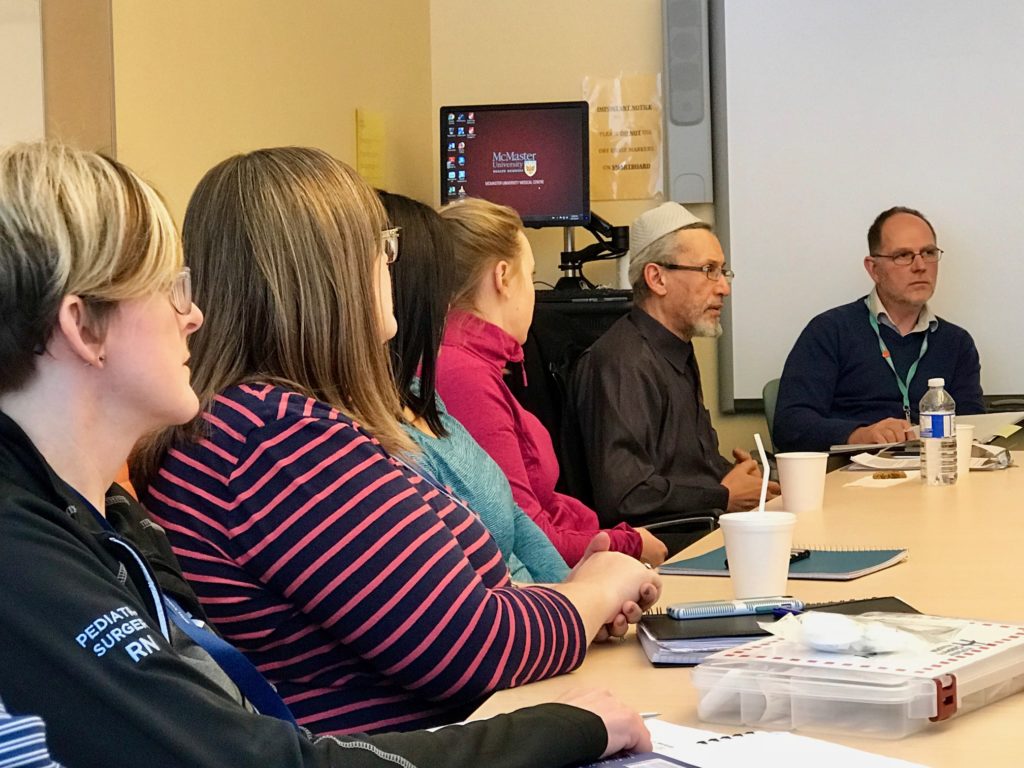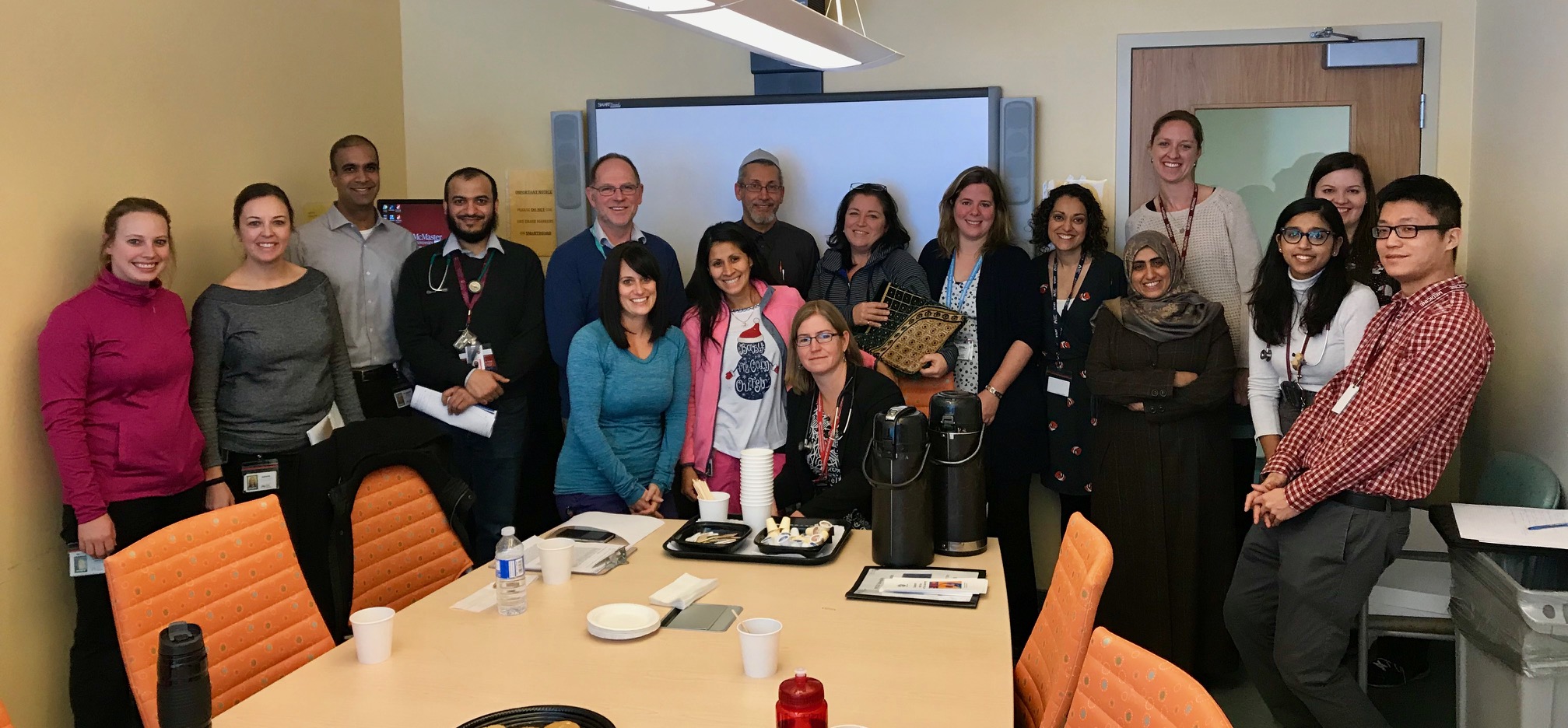
Local Imam educates hospital staff
The Pediatric Intensive Care Unit (PICU) at McMaster Children’s Hospital (MCH) recently welcomed a special guest for a unique learning opportunity. Imam Kamal Gurgi from the Hamilton Downtown Mosque was invited to speak about Muslim spirituality and culture in an effort to improve the way we support Muslim patients and families.
Identifying a need for education
“In conversation with staff, I learned that there have been occasions where they have felt unable to provide the best care possible for Muslim patients and families,” says Femke Visser-Elenbaas, a spiritual care provider at MCH who initiated the workshop. “This had left both families and staff frustrated.”
Many of these frustrations arose out of poor understanding of the specific needs of Muslim patients. For example, Muslim rituals require certain practices to take place as soon as possible after a person dies. These include closing the person’s eyelids, softening their joints and washing their body in a particular way. If unaware of these rituals, a care provider might offend and upset a family after the already traumatic death of a child.
Femke wanted to educate staff about these rituals and sensitives. She spoke with her colleagues, including Dr. Shaikha Al Mehrezi who attends the Hamilton Downtown Mosque. Dr. Shaikha connected Femke with Imam Gurgi, and they made arrangements for him to come speak to the PICU team about spiritually and culturally sensitive care for Muslim families.
“I was so honoured to be given the opportunity”
A first for the Hamilton Imam
Imam Gurgi had never before spoken in a hospital setting, and was grateful for the opportunity to share his wisdom with PICU staff.
“It was amazing,” he says. “I was so honoured to be given the opportunity to share whatever I know. I felt it was something that will be beneficial for many people.”
Imam Gurgi gave an overview of Islam and spoke about how certain spiritual and cultural practices might affect someone’s experience in the hospital. He also answered many questions from staff about how to improve the patient and family experience for Muslim families.
“When families arrive at the hospital, they do not leave their spirituality and cultural background at the main entrance,” notes Femke, emphasizing the importance of culturally sensitive care. “The norms, values and beliefs they hold influence how they receive and perceive the health care that is provided to them.” 
Responding to a growing need
Imam Gurgi has seen a significant increase in Hamilton’s Muslim population over the past few years, and MCH has also experienced an increase in Muslim patients. As these numbers continue to rise, Gurgi hopes to be a continued support to hospital staff by providing more educational workshops.
“It’s been very energizing to see the positive response to this.”
There is certainly appetite from staff to learn more about providing care in the context of different cultures and religions. This workshop attracted 35 attendees—more than twice as many as most sessions. And many staff and physicians have expressed interest in attending similar workshops with leaders from other faith groups.
“It’s been very energizing to see the positive response to this,” says Cathy Watts, quality and safety nurse in the PICU who supported the event. “We hope this will support our staff in providing the best possible care to these families.”
Cathy and Femke, along with Imam Gurgi are eager to continue this partnership, and plan to host more educational opportunities in the coming year.
